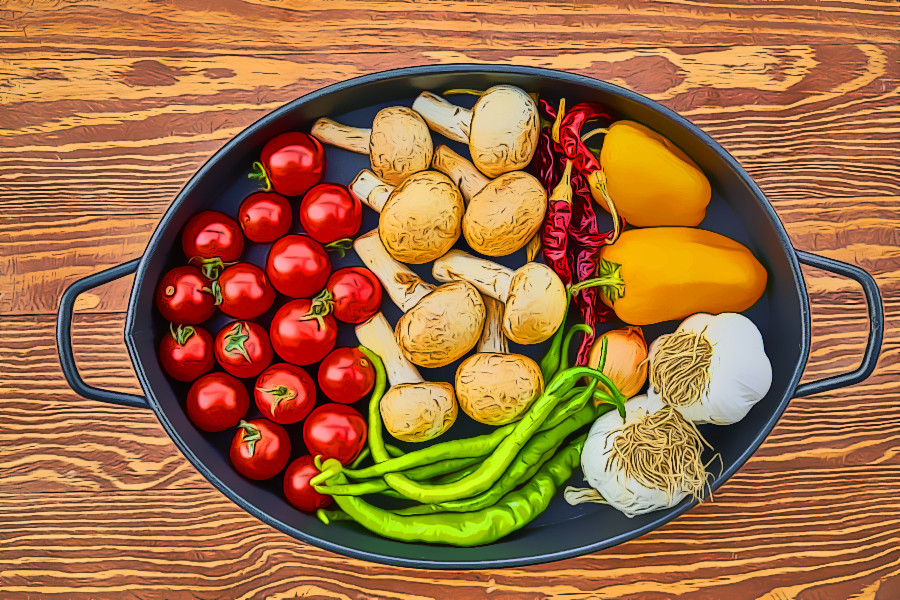Lose Weight and Improve Your Health with a Vegan Diet
Contents:
How a Vegan Diet Can Help You Lose Weight
The Science Behind Veganism and Weight Loss
Simple Steps to Incorporate a Vegan Diet into Your Weight Loss Journey
Vegan Meal Planning for Effective Weight Loss
Overcoming Challenges and Sticking to Your Vegan Diet for Weight Loss
Best Vegan Foods for Weight Loss
Incorporating Exercise into Your Vegan Weight Loss Plan
The Long-Term Benefits of a Vegan Diet for Maintaining a Healthy Weight
Conclusion: Embracing a Vegan Diet for a Healthier and Happier You

The vegan diet has been gaining popularity in recent years, and for good reason. Not only is it a great way to live a cruelty-free lifestyle, but it can also lead to weight loss and improved health. In this article, we will explore how a vegan diet can help you lose weight and how to incorporate it into your weight loss journey.
How a Vegan Diet Can Help You Lose Weight
Many people turn to veganism as a way to lose weight because it is naturally low in calories and fat. Veganism emphasizes plant-based foods, which are typically less calorie-dense than animal-based foods. This means that you can eat larger portions and still consume fewer calories. Additionally, research has shown that a vegan diet can lead to greater weight loss compared to other diets.
The Science Behind Veganism and Weight Loss
The science behind veganism and weight loss is simple. A vegan diet is rich in fiber and nutrients, which can help you feel full and satisfied for longer periods of time. Additionally, plant-based foods are often lower in calories, fat, and sugar than animal-based foods, making it easier to stick to a calorie-controlled diet.
Simple Steps to Incorporate a Vegan Diet into Your Weight Loss Journey
Starting a vegan diet can seem daunting, but it doesn’t have to be. Here are some simple steps to help you get started:
- Gradually reduce your consumption of animal-based products
- Increase your consumption of plant-based foods, such as fruits, vegetables, legumes, and whole grains
- Experiment with vegan substitutes for your favorite animal-based foods, such as tofu, tempeh, and plant-based milks
- Consult with a registered dietitian to ensure you’re getting all the nutrients your body needs
Vegan Meal Planning for Effective Weight Loss
Meal planning is key to successful weight loss, and it’s no different for vegans. Make sure to include a variety of nutrient-dense foods in your meals, such as fruits, vegetables, legumes, and whole grains. Try to also incorporate healthy fats and protein sources, such as nuts, seeds, and tofu.
Overcoming Challenges and Sticking to Your Vegan Diet for Weight Loss
Starting a new diet can be challenging, but sticking to a vegan diet can be even harder. Here are some tips to help you overcome the challenges and stay on track with your weight loss goals:
- Find a supportive community, such as a vegan meetup group or online forum
- Keep healthy snacks on hand, such as fruit or raw veggies, to prevent overeating or reaching for unhealthy options
- Plan your meals in advance to ensure you always have healthy options available
- Don’t be afraid to try new recipes and foods to keep your meals interesting and enjoyable
Best Vegan Foods for Weight Loss
Incorporating the following foods into your vegan diet can help you achieve your weight loss goals:
- Leafy greens, such as spinach and kale
- Fruits, such as berries and apples
- Legumes, such as lentils and chickpeas
- Whole grains, such as brown rice and quinoa
- Nuts and seeds, such as almonds and chia seeds
- Tofu and tempeh for protein
- Avocados for healthy fats
Incorporating Exercise into Your Vegan Weight Loss Plan
Exercise is a crucial component of any weight loss plan, and a vegan diet is no exception. When combined with a healthy, plant-based diet, exercise can help you achieve your weight loss goals faster and maintain a healthy weight in the long run. To incorporate exercise into your vegan weight loss plan, consider the following tips:
- Find an activity you enjoy: Whether it’s yoga, running, hiking, or dance, find an exercise you enjoy and stick to it.
- Make it a habit: Aim to exercise at least three to four times a week and make it a habit.
- Incorporate strength training: Resistance training, such as weightlifting, can help you build muscle, boost metabolism, and support weight loss.
- Stay consistent: Consistency is key when it comes to exercise and weight loss. Make it a part of your routine and stick to it.
The Long-Term Benefits of a Vegan Diet for Maintaining a Healthy Weight
A vegan diet can provide numerous benefits for weight management and overall health. Some of the long-term benefits of a vegan diet include:
- Reduced risk of chronic diseases: A vegan diet has been shown to reduce the risk of chronic diseases, such as heart disease, type 2 diabetes, and certain cancers.
- Improved gut health: A plant-based diet is high in fiber and beneficial nutrients, which can improve gut health and promote weight loss.
- Better digestion: A vegan diet can improve digestion, as plant-based foods are easier for the body to break down and absorb.
- Better insulin sensitivity: A vegan diet has been shown to improve insulin sensitivity, which can help with weight management and prevent the development of type 2 diabetes.
Conclusion: Embracing a Vegan Diet for a Healthier and Happier You
In conclusion, a vegan diet can be a highly effective tool for weight loss and maintaining a healthy weight in the long term. By incorporating exercise into your vegan weight loss plan and reaping the long-term benefits of a plant-based diet, you can achieve your weight loss goals and enjoy a healthier and happier life. So, if you’re looking for a sustainable and healthy way to lose weight, consider embracing a vegan diet today.

